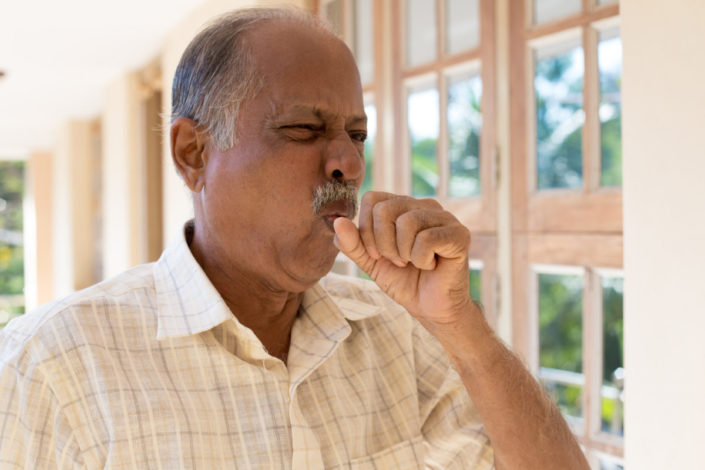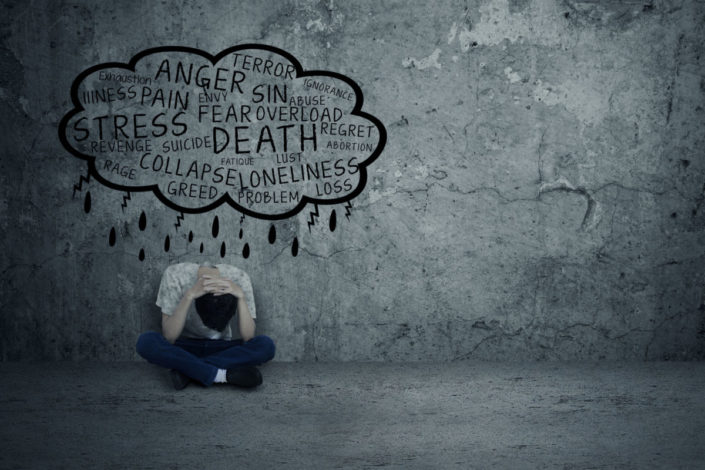Acute Bronchitis
What is acute bronchitis?
Acute bronchitis is inflammation of your bronchial tree. The bronchial tree consists of tubes that carry air into your lungs. When these tubes get infected, they swell and mucus (thick fluid) forms inside them. This makes it hard for you to breathe.
Acute bronchitis only lasts a short time (several weeks or less). Chronic bronchitis is long lasting and can reoccur. It usually is caused by constant irritation, such as from smoking.
Symptoms of acute bronchitis
The symptoms of acute bronchitis can include:
sore throat
fever
cough that brings up clear, yellow, or green mucus
chest congestion
shortness of breath
wheezing
chills
body aches.
Your cough can last for several weeks or months. This happens because the bronchial tree takes a while to heal. A lasting cough may signal another problem, such as asthma or pneumonia.
What causes acute bronchitis?
Viruses most often cause acute bronchitis. They attack the lining of the bronchial tree and cause inflammation. The same viruses that cause colds can cause acute bronchitis. You can catch a virus from breathing it in or skin contact. As your body fights these viruses, swelling occurs and mucus is produced. It takes time for your body to kill the viruses and heal damage to your bronchial tubes.
Lesser-known causes are bacteria or fungal infections. Exposure to irritants, such as smoke, dust, or fumes, also can cause acute bronchitis. You are at greater risk if your bronchial tree already has damage. If you have GERD (gastroesophageal reflux disease), also known as heartburn, you can get acute bronchitis when stomach acid gets into the bronchial tree.
How is acute bronchitis diagnosed?
Your doctor can confirm acute bronchitis. They will do a physical exam and review your symptoms. They might order an X-ray to rule out pneumonia.
Can acute bronchitis be prevented or avoided?
You can help prevent acute bronchitis by staying healthy and avoiding germs. Wash your hands often to kill any viruses. If you smoke, the best defense against acute bronchitis is to quit. Smoking damages your bronchial tree and puts you at risk for infection. Smoking also slows down the healing process.
Acute bronchitis treatment
Most cases of acute bronchitis can be treated at home.
Drink fluids, but avoid caffeine and alcohol.
Get plenty of rest.
Take over-the-counter pain relievers to reduce inflammation, ease pain, and lower your fever. Acetaminophen (Tylenol) also helps ease pain and lower your fever.
Use cough medicine, if your child is age 6 or older.
Increase the humidity in your home or use a humidifier.
Do not hold in a cough that brings up mucus. This type of cough helps clear mucus from your bronchial tree. If you smoke, you should quit. It will help your bronchial tree heal faster.
Antibiotics do not help treat viruses. They can help treat cases caused by bacterial infections. Some people who have acute bronchitis need medicine that treats asthma. You might need this if you are wheezing. It can help open your bronchial tubes and clear out mucus. You usually take it with an inhaler. An inhaler sprays medicine right into your bronchial tree. Your doctor will decide if this treatment is right for you.
Living with acute bronchitis
Most cases of acute bronchitis go away on their own. You should call your doctor if:
You continue to wheeze and cough for more than 2 weeks, especially at night when you lie down or when you are active.
You continue to cough for more than 2 weeks and have a bad-tasting fluid come up into your mouth. This may mean you have GERD. This is a condition in which stomach acid gets into your esophagus.
Your cough produces blood, you feel weak, you have an ongoing high fever, and you are short of breath. These symptoms may mean you have pneumonia.
Questions to ask your doctor
What is causing my acute bronchitis?
Are there over-the-counter medicines or prescriptions that can help relieve my symptoms?
Am I contagious?
Am I at risk for getting pneumonia or other lung infections?
What should I do if my couth doesn’t respond to treatment or gets worse?
Resources
American Lung Association, Acute Bronchitis


